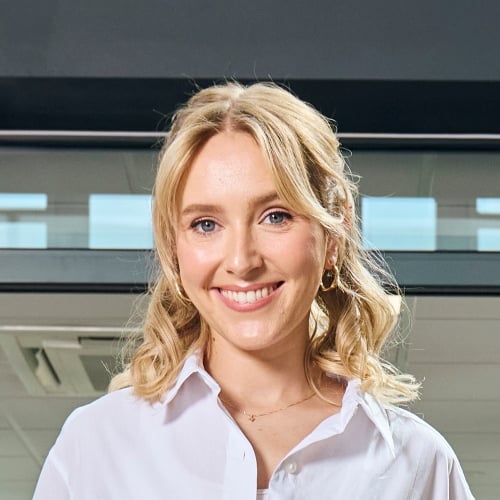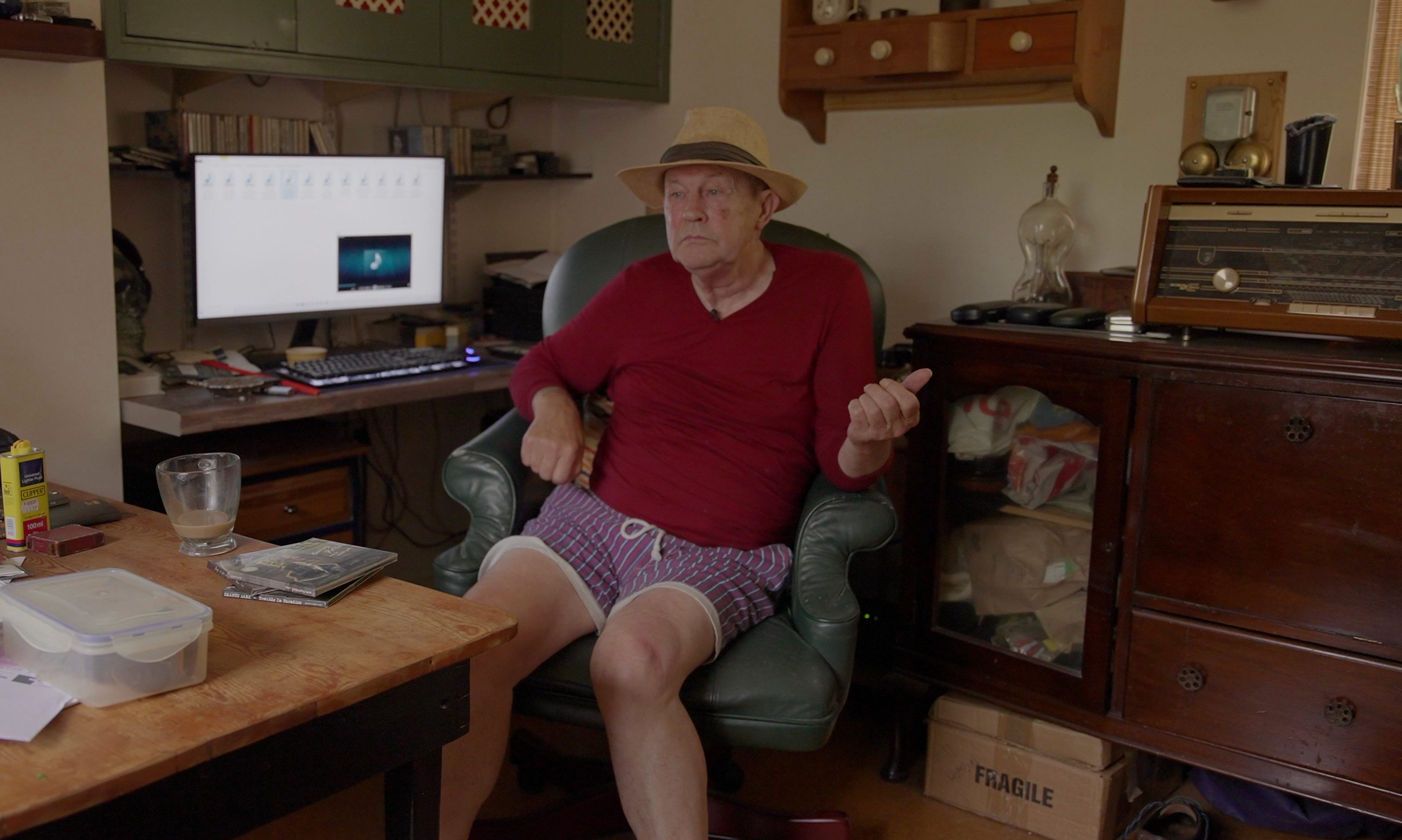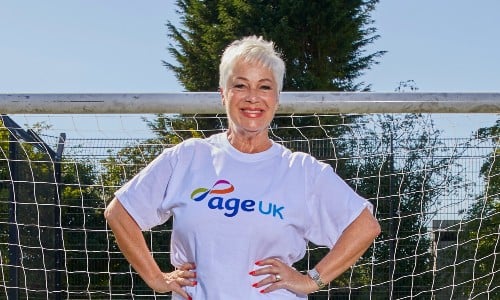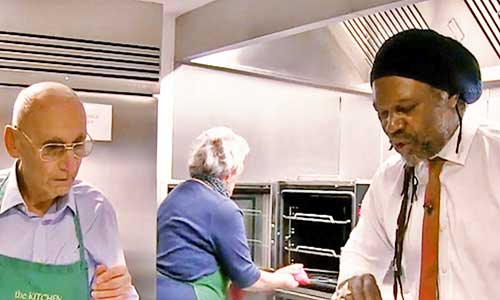Rose Ayling-Ellis isn’t afraid of breaking new ground.
As the first Deaf actor to regularly star in Eastenders, Rose brought signing to the soap by delivering her lines in a combination of spoken English and British Sign Language (BSL). On Strictly Come Dancing, she won hearts and votes as the series’ first Deaf contestant – and later, champion – with joyous routines that showcased how she experiences the world. But it’s arguably Rose’s recent documentary, Old Hands, New Tricks, that is blazing the biggest trail.
“I’ve got a crazy idea,” Rose reveals at the start of the documentary, “and I can’t believe that no one’s thought of it before.”
The premise is a straightforward one: to teach BSL to older people who may be living with hearing loss. But in practice, the project proved to be full of surprises.
The benefits of BSL
“BSL is a big part of my life,” Rose explains. “I began learning it at a young age, and it’s allowed me to communicate effectively and connect deeply with the Deaf community. This ability to express myself and understand others has been invaluable.”
But Rose knows that there are plenty of people living with deafness or hearing loss who haven’t grown up with BSL, who are missing out on the benefits the language can bring. Hearing loss affects around 12 million adults in the UK, including 80% of people aged 70 and over, yet the provision to help older people who are Deaf or hard of hearing is often lacking.

I understand how isolating it can be when communication barriers exist. I wanted to use this project to bridge that gap for others.
“There are only two BSL-accessible care homes in the UK,” says Rose. “This can lead to potential isolation and challenges for Deaf residents.”
It’s something that viewers see play out in Rose’s first visit to Hughenden Gardens Retirement Village – the setting for her passion project. With an average age of 80, the residents of this Buckinghamshire community are self-professed “recycled teenagers”, and many frequently take advantage of the huge programme of activities. But those who experience hearing loss often face difficulties with joining in.
So, as Rose prepares to share her innovative idea with a hall full of the retirement village’s residents, we see one attendee leave the room. “I can’t hear a word,” Eric says of the meeting, as he returns to his apartment. “I give up.”
For Rose, this sense of feeling left out by inaccessible communication is all too familiar. “I understand how isolating it can be when communication barriers exist,” she explains. “I wanted to use this project to bridge that gap for others.”
Overcoming challenges
Although the first reaction from many residents to Rose’s BSL lessons is lukewarm at best – with one woman declaring that, at age 101, she’s too old to learn – Rose persuades a small cohort of students, including Eric, to take the plunge.
Marios, a BSL teacher, is recruited to assist Rose, and over the course of six weeks the students of Hughenden Gardens are put through their paces. Along the way, there’s no shortage of challenges – from arthritic fingers to crises of confidence – but does Rose think there were plenty of pleasant surprises too?
“Absolutely! I was surprised by the enthusiasm and determination of the students,” Rose admits. “One challenge was addressing the misconception that older people might be too set in their ways to learn something new, but the students proved this wrong. Despite initial scepticism and the physical challenges some faced with signing, their commitment was inspiring. Their ability to grasp BSL demonstrated that age is not a barrier to learning.”
Throughout the documentary, viewers also get to witness the methods Rose and Marios use to keep the students engaged and learning, including bringing a group of Deaf schoolchildren on board to act as additional tutors. How does Rose think that helped?
“Interacting with schoolchildren brought a fresh and energetic dynamic to the learning process,” says Rose. “The students enjoyed the intergenerational exchange, which made learning more engaging, and I think the children, in turn, gained empathy and understanding of the challenges the students faced. It fostered a sense of mutual respect.”

Promoting awareness and understanding of different conditions can create an environment where everyone feels valued and accommodated.
Inclusivity for everyone
Rose believes respecting and empathising with individual experiences is crucial. Over the course of the documentary, the audience learns that many of Rose’s BSL students are facing additional challenges – from vision loss to mobility problems – that affect their access needs.
As such, Rose explains, “it’s essential to adopt a holistic approach to accessibility. This includes designing public spaces that cater to various needs, such as clear signage and wheelchair accessibility. Promoting awareness and understanding of different conditions can also create an environment where everyone feels valued and accommodated.”
Taking small steps to build such an environment can have a big impact. By the end of Rose’s six-week course, many of her students have learned to express their names, emotions, and even their dinner orders through BSL – and it’s easy to see the beginnings of a ripple effect on the students’ families, other residents and the retirement village’s staff members.
“I hope this project raises awareness about the importance of BSL and encourages more people to learn it, not solely those who are Deaf or hard of hearing,” says Rose. “BSL can serve as an effective communication tool for people with various speech and language challenges, breathing difficulties, stutters, brain injuries. The list goes on. By broadening the understanding of BSL’s applicability, we can foster a more inclusive society where everyone has the means to express themselves.”
Rose Ayling-Ellis: Old Hands, New Tricks is available to watch now on BBC iPlayer.






